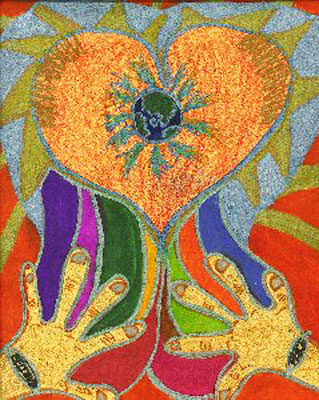All Nonfiction
- Bullying
- Books
- Academic
- Author Interviews
- Celebrity interviews
- College Articles
- College Essays
- Educator of the Year
- Heroes
- Interviews
- Memoir
- Personal Experience
- Sports
- Travel & Culture
All Opinions
- Bullying
- Current Events / Politics
- Discrimination
- Drugs / Alcohol / Smoking
- Entertainment / Celebrities
- Environment
- Love / Relationships
- Movies / Music / TV
- Pop Culture / Trends
- School / College
- Social Issues / Civics
- Spirituality / Religion
- Sports / Hobbies
All Hot Topics
- Bullying
- Community Service
- Environment
- Health
- Letters to the Editor
- Pride & Prejudice
- What Matters
- Back
Summer Guide
- Program Links
- Program Reviews
- Back
College Guide
- College Links
- College Reviews
- College Essays
- College Articles
- Back
Christianity and the Holy Wisdom
When I was younger, religion was a word with a definition. God was a superlative man with a face. And the words of the prophets were always placed between even, black quotation marks.
Growing up in a strictly Christian family, one would assume that I would hold the religious beliefs of my siblings, parents, and grandparents. On the contrary, memories of my grandmother reading the psalms to me are intricately linked with nights of forgetting to say my prayers, leaving my Children’s Bible untouched, and falling asleep wondering how big God’s ears are.
I cannot remember a time when there was not a shard of agnosticism in me. So one would also assume that going to a country where a Lilliputian 1% of the population shared my fleeting beliefs, that I would be liberated.
5,000 miles away and sweating in a city 50°F hotter than my home, I was not excited about trekking across Istanbul, no matter how lucky I was to be there in the first place. Persuaded with promises of exploring the Grand Bazaar and disgust at the boredom of staying on the ship, I reluctantly donned my grimy gladiator sandals and followed the rest of my family down the gangplank into the pouring rain.
Regardless of the size of my umbrella, my feet and ankles were covered in city grime and putrid rain when the tour guide finally led us into the Hagia Sophia (Holy Wisdom, literally translated). After a sparse midday meal of pretzel-like bread bought from a street vendor, we entered the hallowed hall.
If I had any apprehensions, religion related or not, as to entering the museum, all faded away when I took in the splendor of the lower gallery. Gold, marble, and all the spectrum’s colors beamed at me with glinting smiles and open arms as the sun poked through the clouds and onto the floor in shafts of luminosity. But when the guide directed me towards the tower (really an upward spiraling hallway of deadly smooth flagstones) that lead to the upper gallery, I had an overcoming sensation that my enlightenment dwelled in that lionized building.
The climb to higher knowledge was treacherous in flat-soled shoes, and though I sprawled against the ancient walls with every attempted step, the ascent was well worth it. The view from the balcony was the most thrilling sight I have ever seen in my entire life. Elation overcame me and washed away the unhappy, early part of my day.
I am sure that anyone who has visited the Hagia Sophia will tell you it is an amazing experience. The ambiance, the mastery of every detail, and the sheer prowess of the building all factor in to make the memory unforgettable. But for me, the most striking part was the harmonious clash of what are today thought of as opposed religions. On the walls of the gallery’s walkway, the stern, pious faces of Christian emperors and empresses who ruled Istanbul when she was Constantinople stand as frescos in contrast with four enormous bronze discs decked in elaborate, gold Islamic calligraphy that hang from the corners of the base of the domed roof. Standing side-by-side o one of the most famous places of worship the world has ever seen. And the world in which they stand today is usually divided into a religious war between Christians and Muslims, God and Allah, Christ and Mohammed. Another moving fact is that, when the Hagia Sophia was converted from church to mosque in 1453, the portraits of Christian rulers were not painted over or covered by those of sultans. Though time has worn them away, the paintings were never invisible, and the placid eyes still stare, expressionless, over gaping tourists as they did over Christian worshipers in the 15th century.
So when I walked out the Hagia Sophia, religion was an undefined word, something no dictionary could pin down. If there is a God, he is whatever those believers in him picture him to be. And if the prophets really said what we think they did, their words were surely meant to unite us, regardless of religion; after all, many of their words appear in the Old Testament, the one holy book the three great religions share.
But above all, the world became a world in which religions at war could find a place to settle their differences for good. And my lasting holy wisdom was experiencing a place in which two hugely different bodies of belief could coexist without the guns, fighting, and blood that it takes to keep them at bay in today’s world, and when one dominated the other, the losing side was not erased from memory, or in this case, history as we know it.

Similar Articles
JOIN THE DISCUSSION
This article has 0 comments.
